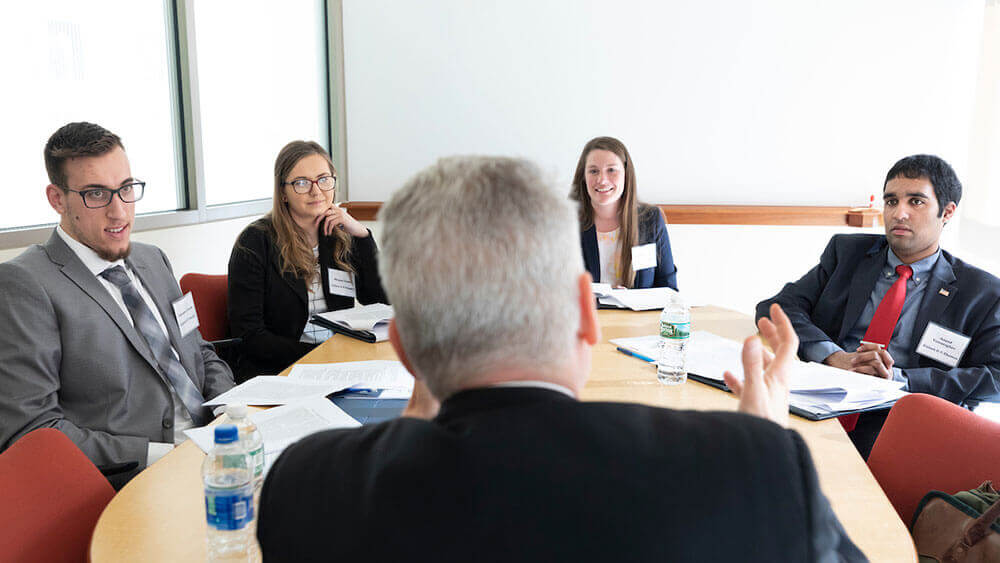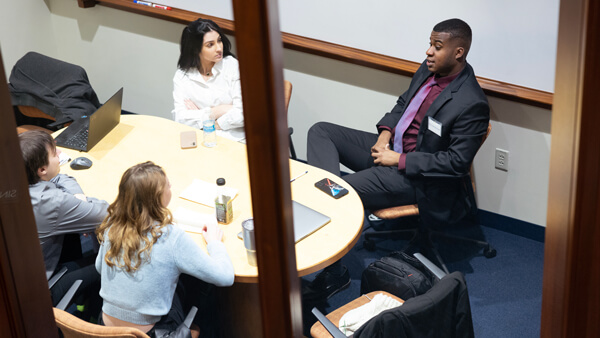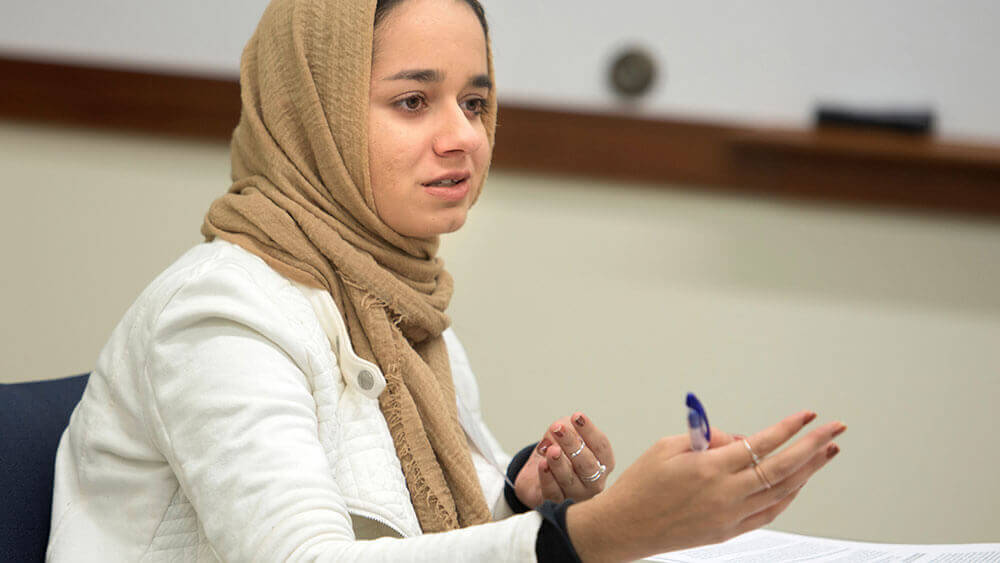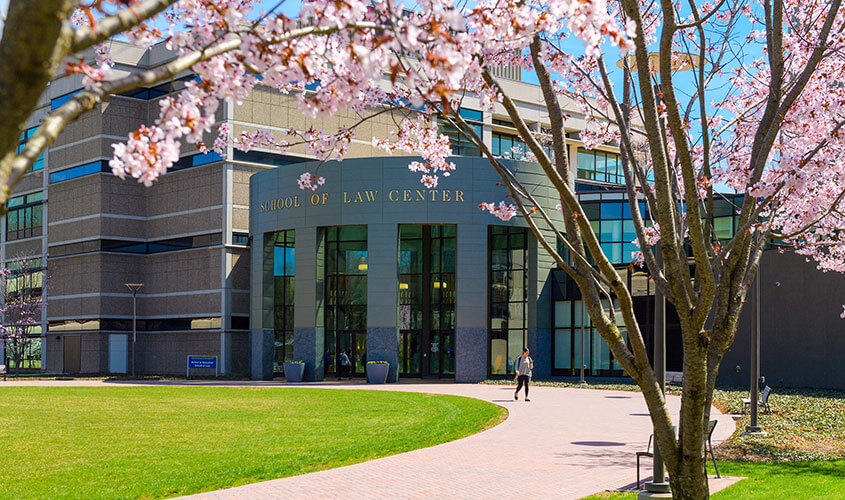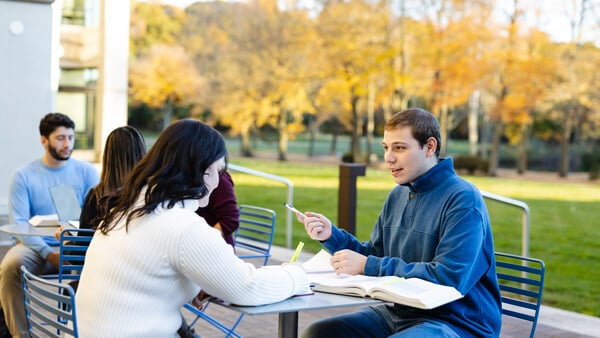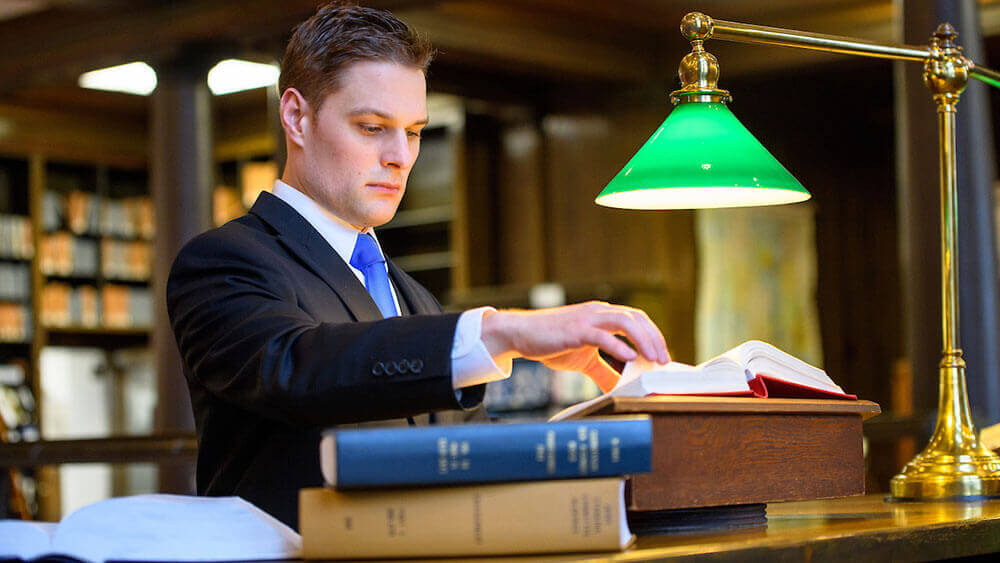Explore Quinnipiac Law
Our digital viewbook serves as your introduction to how we approach law school. It has all the facts and figures you need but it also shows there will be many dimensions to your time at Quinnipiac University School of Law — and to your future life as a lawyer. You will find stories of recent graduates who are forging their paths as well as the professors who taught and mentored them during their time here. You will learn about life both inside and outside of the classroom, and opportunities in the field. It’s a point-counterpoint look at life at Quinnipiac Law and what distinguishes us from other law schools.

